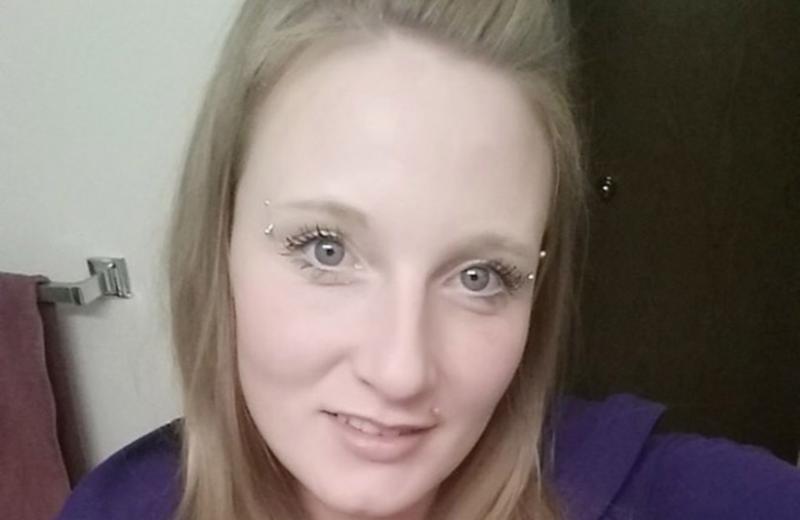Teri-Lynn was put up for adoption by her biological parents, both of whom struggled with substances. She remembers from a young age thinking she’d done something wrong to not be loved or wanted. This message became deep-rooted as she was moved from foster home to foster home due to abusive environments. Fortunately, Teri-Lynn eventually moved into a great, safe foster home, with people who she still has a close relationship with.
Growing up, she still unconsciously, yet desperately, sought acceptance. She found that despite being kicked out of school, providing THC (the mind-altering ingredient found in cannabis) to her friends was worth it to her. At 14 years old, she became hooked on crack cocaine, a habit she supported by engaging in criminal activity. After three years of experiencing repeated episodes of paranoia and drug-induced psychosis, she hitchhiked with a friend to the downtown East side of Vancouver and soon began using heroin and fentanyl.
This cycle of stealing and other criminal activity continued until her 18th birthday, when she became pregnant. She did her best to cut back on her use, to “do right by her baby,” but after a year, this lifestyle was too much and after one hit, she was hooked again.
She became re-entrenched in a life of stealing and other criminal activity to support her substance use habit. During that time, nurses, shelter staff, strangers, and mental health workers revived her 22 times.
“If it wasn’t for naloxone, I’d be dead,” says Teri-Lynn. “I was tired of having seizures, going to jail, being on the psychiatric unit for being suicidal, seeing cops outside my window, hiding in the closet because I was so paranoid, going to detox three times and treatment three times.”
After being on the methadone program for three years, fearing she’d overdose due to ongoing polysubstance use, she made the move back to Fort St. John with only a 4-week prescription.
After connecting with the Fort St. John Northern Health mental health office, she was immediately accepted into the Opiate Substitution Treatment Program (OSTP) and began working with the staff and Dr. Ohiaeri (now the Northern Health Medical Lead for Addiction in the Northeast).
Opiate Substitution Treatment provides clients with methadone or Suboxone to provide stable, long-acting relief from withdrawal and cravings. These medications replace the heroin or fentanyl that’s causing the problem with a regular dose of medication, which allows for a stable life.
During the intake process for the program, she was diagnosed with Hepatitis C and knew that changes needed to be made.
“Dr. Ohiaeri understood how hard it was for me, but still called me out when I told him I wasn’t clean. At first I didn’t like him, but looking back that’s what I needed,” says Teri-Lynn.
She recalls how the Women’s Resource Society and the mental health office helped her navigate the medical system, which had previously looked down on her and judged her. She found the staff to be open-minded and caring.
She was placed on medical disability due to a seizure disorder and things started to look up. She had stable housing and a regular income and was ready to make some big changes. She joined Narcotics Anonymous, working the 12-step program and going to church. These agencies provided some much needed support and acceptance.
It was at this time she requested to be transitioned into Opiate Agonist Treatment (OAT), with the intention of coming off medication altogether. This program supports clients with opioid use disorder by using a harm reduction approach and providing overdose survival training, take home naloxone kits, and opioid agonist therapy (buprenorphine/naloxone or methadone). Opioid agonist therapy works to prevent withdrawal and reduce cravings for opioid drugs. People who are addicted to opioid drugs can take OAT to help stabilize their lives and reduce the harms related to their drug use.
Teri-Lynn characterizes this decision as “the best thing ever. It helped me stay clean. Everyone should be offered it. I started on 32mg and within three months was down to 2mg. I’ve been off for 30 days and I don’t have any cravings. These past several months have been the first time in my life I’ve been motivated, happy and healthy. I’m even working part-time as a cashier at a local fast food establishment.”
She has reconnected with her 13-year-old daughter, who lives full-time with her father, and has recently been granted custody of her 5-year-old daughter, four days a week. She is slated to go to court in the near future, with the support of the foster mom, to ask for full custody. Teri-Lynn was also referred for Hep C treatment and is now cured.
Her advice: Have naloxone at shelters, Women’s Resource Centre, Mental Health Centres, hospitals, and Narcotics Anonymous meetings. Make access to naloxone easy. Have peer volunteers providing clean needles, naloxone kits, and candy for people on the streets.
“Don’t judge us. None of us want to die,” says Teri-Lynn.
Teri-Lynn has naloxone kits in her car, her house, and her purse.
“If it wasn’t for naloxone or Narcan, I’d be dead,” she says.
She currently holds a General Service Resource position with Narcotics Anonymous, chairs meetings, and advocates opiate substitution treatment to her peer groups.
If you or someone you know needs help, go to the Northern Health Mental Health and Substance Use webpage, the overdose prevention webpage, or call the crisis line at 1-800-784-2433 (1-800-SUICIDE).














Comments